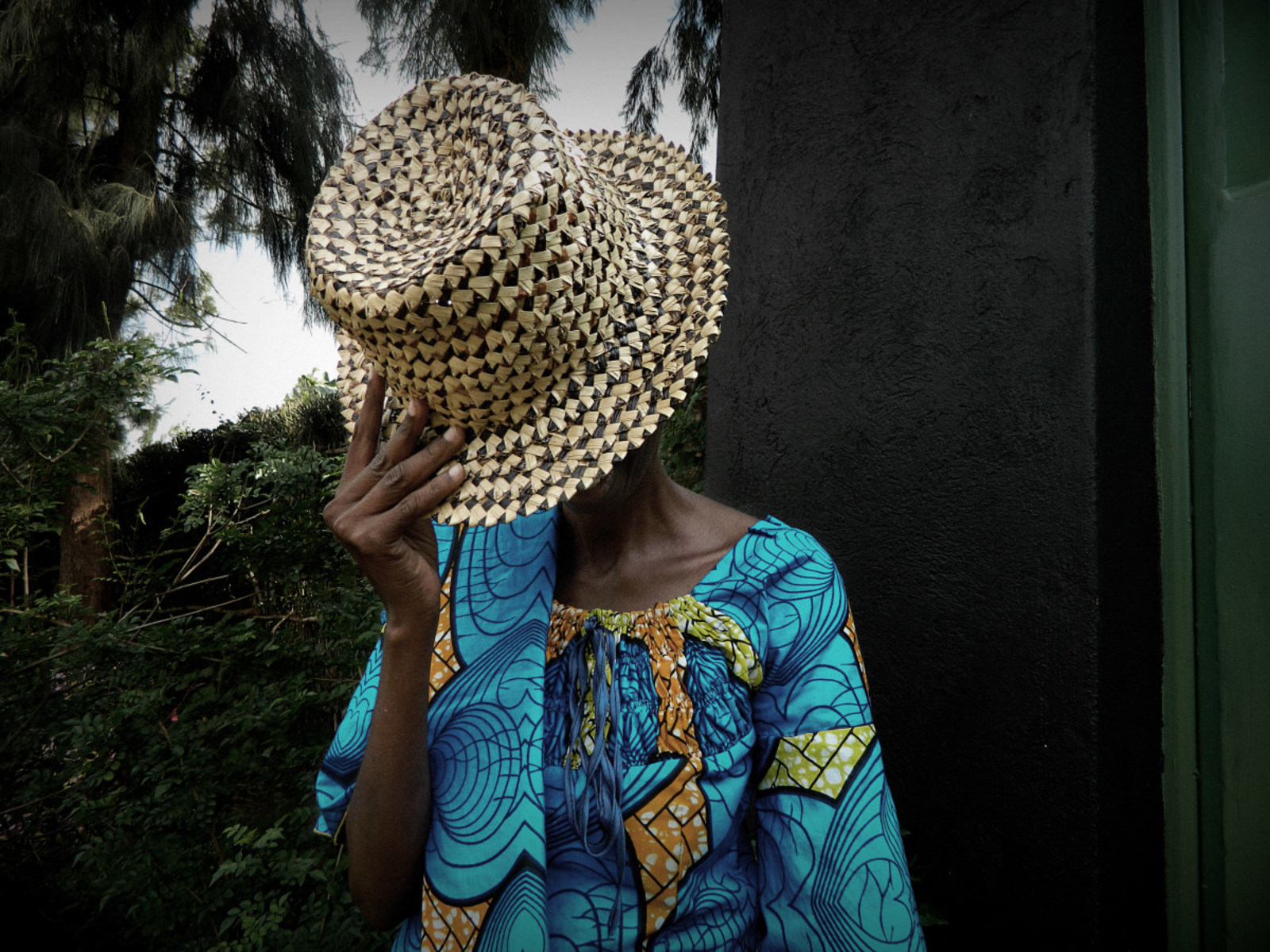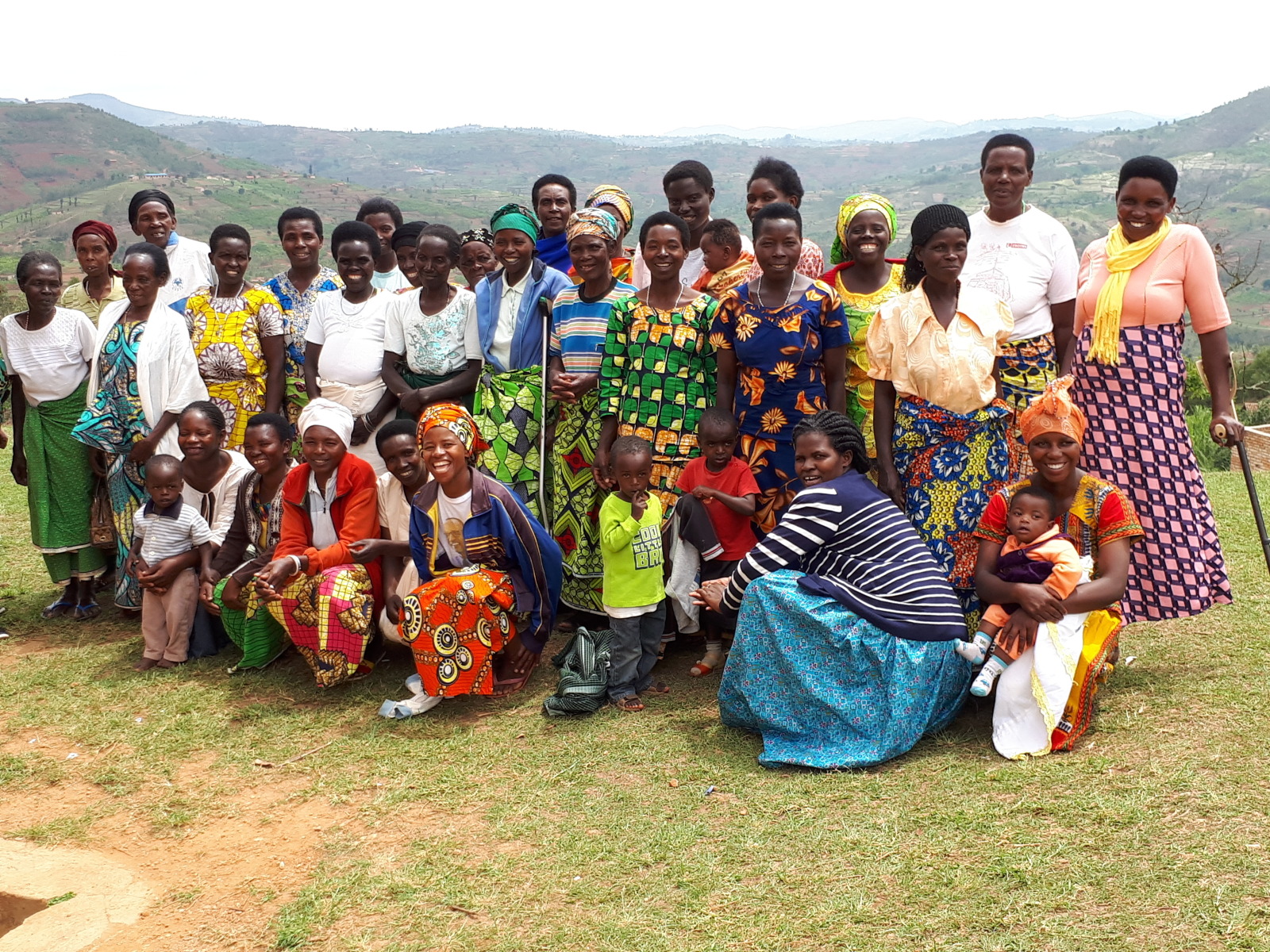share

Rwanda © Wendy Huyghe / HI
The international campaign, "16 Days of Activism to End Violence Against Women" will take place from November 25—December 10. On this occasion, three HI specialists shed light on HI’s commitment to ensure the full protection of women and girls, especially those with disabilities.
All women and girls, with or without disabilities, are vulnerable to violence. This may be physical (domestic violence, sexual violence, rape, and forced marriage), psychological (verbal violence, insults, and denial of opportunity and services), or economical (denial of inheritance and deprivation of resources).
Studies show that the risk of violence for women with disabilities is two times higher than for women without disabilities. And for girls with disabilities, the risk is even higher—at four times the rate. Therefore, women and girls with disabilities face additional violence such as psychological abuse, confinement, forced sterilization, or medical treatment without consent.
The root causes of this violence are found in gender inequalities, unequal power relations, and a lack of respect for human rights. Other factors, such as poverty, excessive alcohol consumption, lack of access to services, crisis situations, etc., may contribute to increased violence.
In response to this situation, HI is taking action. Three of our specialists are raising their voice: Magali Videau, Protection Specialist, Sophie Pécourt, Coordinator of the Making It Work "Gender and Disability" project and Corinne Gillet, Disability, Gender and Age Mission Officer.
In order to effectively combat this violence we must act on the root causes. We do this through activities that aim to transform attitudes and social norms. We carry out awareness-raising at community level on gender equality, and on the non-trivialization of violence through theatre workshops, videos, and discussion groups.
We also provide psychological and psychosocial support to violence survivors. We support economic resilience by developing income-generating activities, as we know that women and girls living in extreme economic insecurity are more likely to be affected by domestic violence, or to resort to prostitution in order to survive. Our teams refer people to medical care providers, as sexual violence can lead to injuries, sexually transmitted diseases, and unwanted pregnancies.
At a more macro level, HI advocates that girls and women with disabilities be fully included in psychological, medical and legal policies and spaces.
HI operates in both development and emergency settings—either through projects specifically dedicated to fighting gender-based violence, with particular attention to, and specific measures for people with disabilities, or by integrating this component into other projects working on mental health or education for instance...

Rwanda © Wendy Huyghe / HI
HI works as an ally of women with disabilities in their fight against discrimination and violence. We work to give women and girls with disabilities visibility in policy on gender inequality and violence and improve their inclusion in programs that address violence. More broadly, we promote inclusion of women with disabilities of all ages in the actions undertaken by feminist movements.
Through our Making It Work project "Gender and Disability", we work with a network of 17 women's and organizations for women with disabilities in eight African countries to highlight and support the practical actions of women with disabilities themselves.
These actions cover all aspects of gender-based violence (GBV), from prevention to women's empowerment. They also aim to ensure women are fully aware of their rights. In the same way that they discriminated against because of their multiple identities (as women, as persons with disabilities, but also as elderly or young, from an ethnic or sexual minority, educated or not, etc.) women can also find protection in the different human rights instruments targeting women, persons with disabilities, etc. However, the provisions in these instruments will never be complete, because they do not encompass each individual’s diversity.
Making It Work and its partners promote an increased recognition of the intersectionality of gender, disability, and all the other identities that make up each human being. Indeed, an anti-violence program that ignores the fact that some women are specifically affected, because of their origins or because they have a disability, or are less educated, or elderly, is bound to be ineffective. Take the example of emergency hotlines for victims of sexual violence. If this does not include an SMS option, deaf women will not be able to access this service. Similarly, if police forces do not provide assistance (e.g. a sign language interpreter, translation) for women with whom they cannot communicate, their complaints will not be recorded.
As an ally of women with disabilities, HI is working to ensure their full and effective inclusion in the fight against violence. This call for greater inclusion and diversity is reflected in a Call to Action.




© Sophie Pécourt / HI
HI has adopted an institutional "Age, Gender and Disability" policy which commits to systematically considering disability, gender and age as possible factors of exclusion or vulnerability in our actions. This policy provides us with the means of ensuring that women, men, girls and boys, with or without disabilities, are taken into consideration and have access, on an equal basis with others, to the benefits of our actions. This shows how HI complies at the highest level with the "Leaving No One Behind" principle, the central pledge of the 2030 Agenda for Sustainable Development.
To this end, we follow four guiding principles: participation, equality and non-discrimination, accessibility and protection of our beneficiaries. We have also adopted a two-pronged approach: on the one hand, to be disability, gender and age sensitive in all areas of the organization's work; and on the other hand, wherever possible, to be transformative to achieve effective inclusion.
Equality and non-discrimination. We commit to systematically paying attention to inequalities relating to disability, gender and age and how they interact with other factors that create inequality (sexual orientation, socio-economic status, geographical location, ethnic origin, etc.). This will allow people who are discriminated against on this basis, to benefit from our actions on an equal footing with everybody else. Moreover, as we acquire a more detailed understanding of situations of exclusion and the power relations that build them, we will be better equipped to pre-empt the abuses of power in which violence is rooted.
Participation is a key principle. It commits us to involving boys, girls, women, and men of different ages (children and the elderly)—including people with different disabilities—in the design, implementation, monitoring, and evaluation of our actions.
Protection is another fundamental principle. Our Disability, Gender and Age Policy has been developed in line with the organization’s institutional policies and guidelines, in particular the "Child Protection Policy" (PEP) and the "Policy for the Protection of Beneficiaries against Sexual Exploitation, Abuse and Harassment" (PEAHS). These policies affirm our determination to combat the sexual exploitation, abuse and harassment of children and adults benefiting from or impacted by HI's interventions and to implement measures to reduce risks on our programs.








HI is an independent and impartial aid organisation working in situations of poverty and exclusion, conflict and disaster. We work alongside people with disabilities and vulnerable populations, taking action and bearing witness in order to respond to their essential needs, improve their living conditions and promote respect for their dignity and fundamental rights.
HI is an independent and impartial aid organisation working in situations of poverty and exclusion, conflict and disaster. We work alongside people with disabilities and vulnerable populations, taking action and bearing witness in order to respond to their essential needs, improve their living conditions and promote respect for their dignity and fundamental rights.